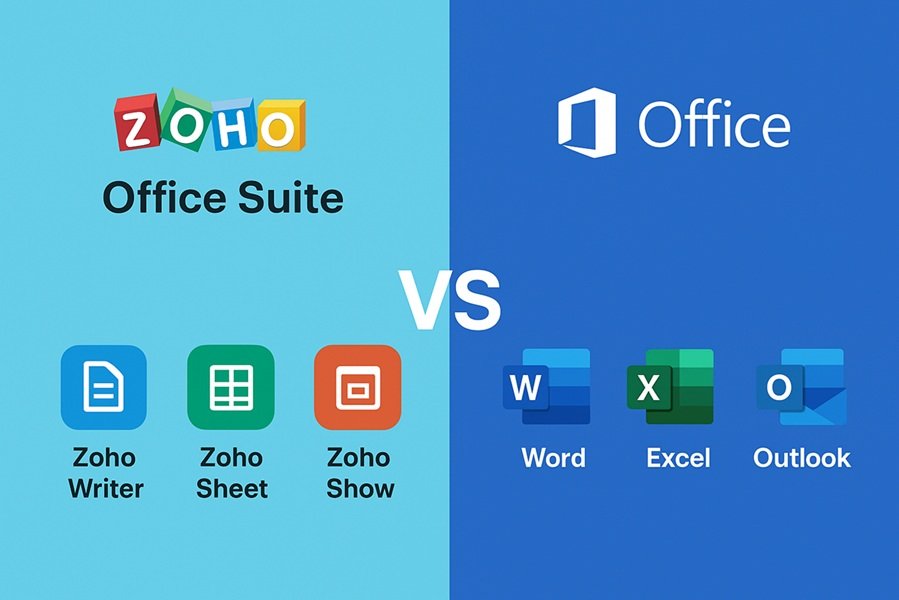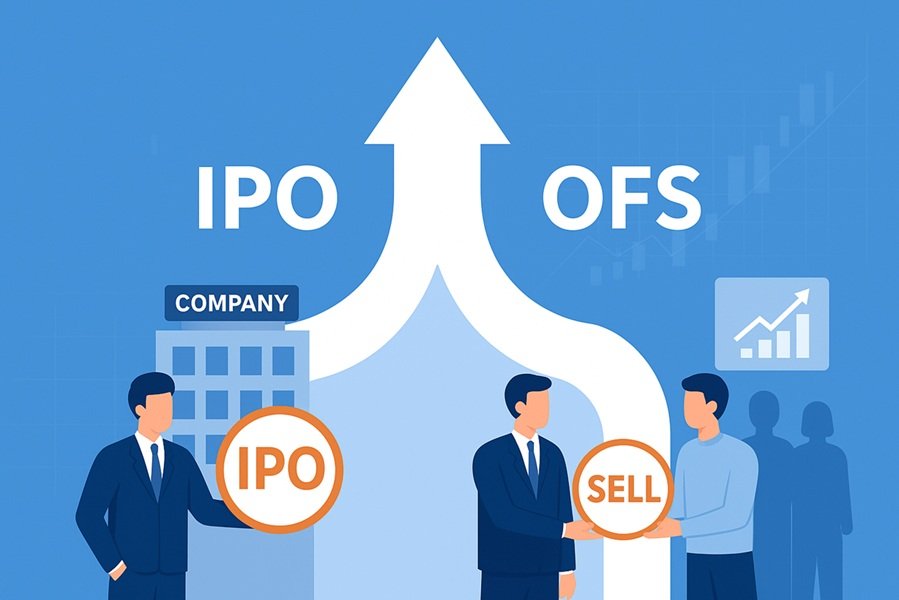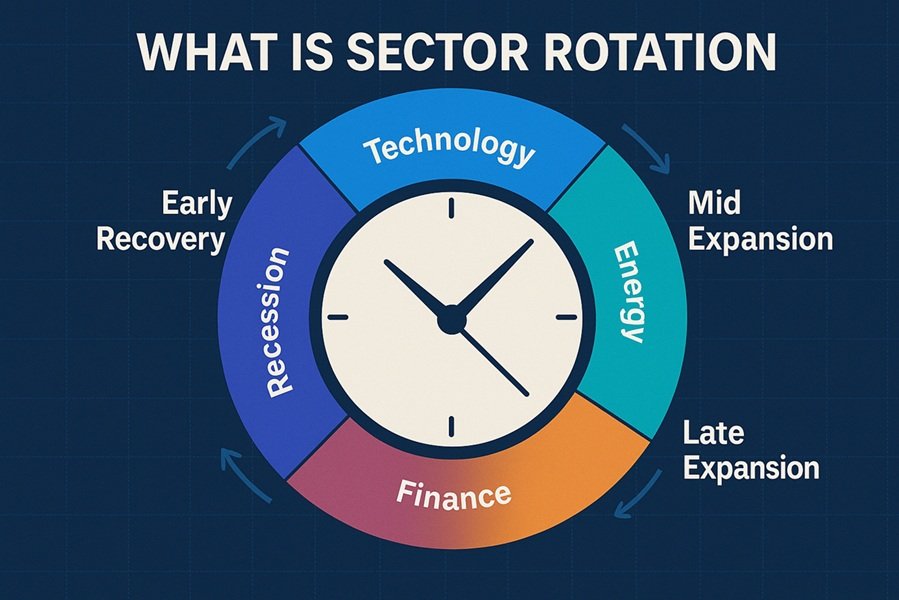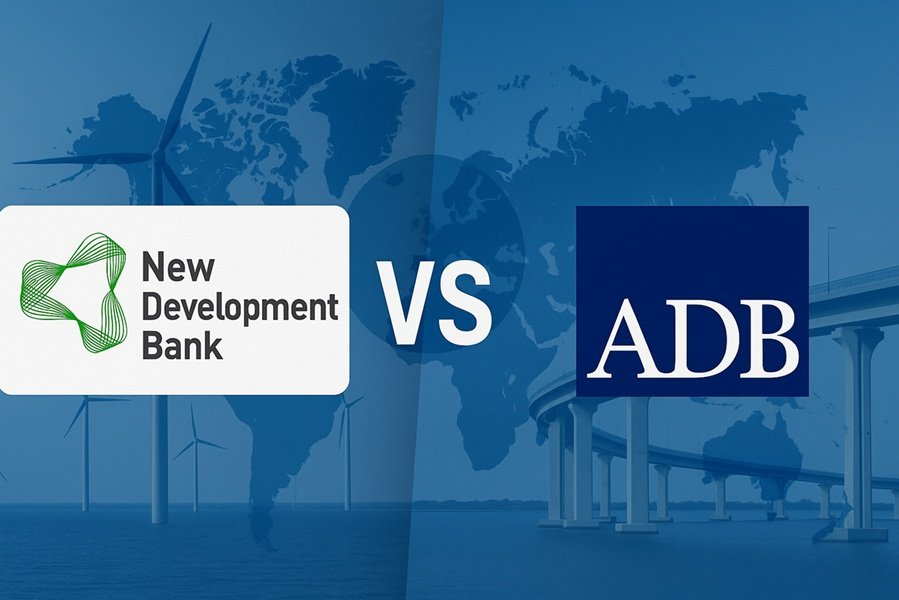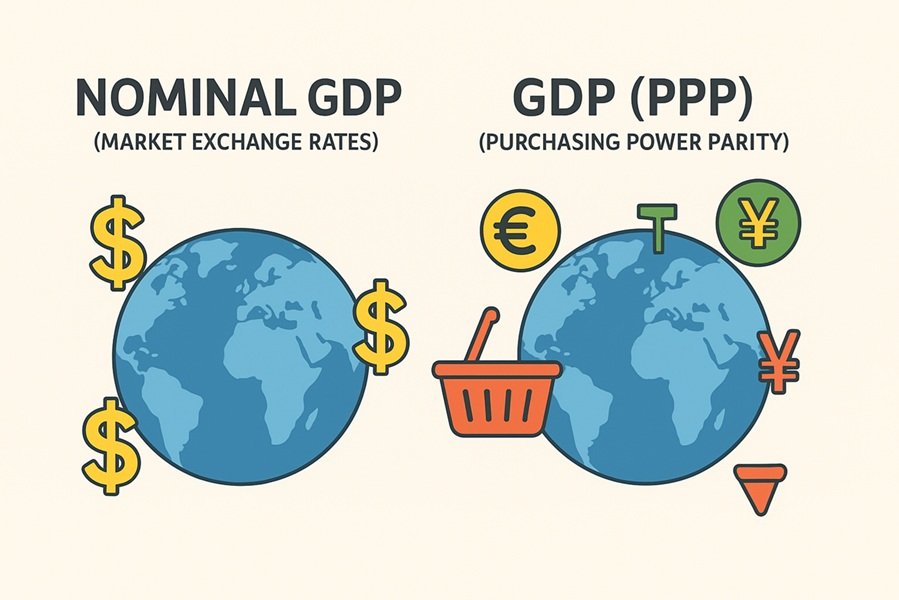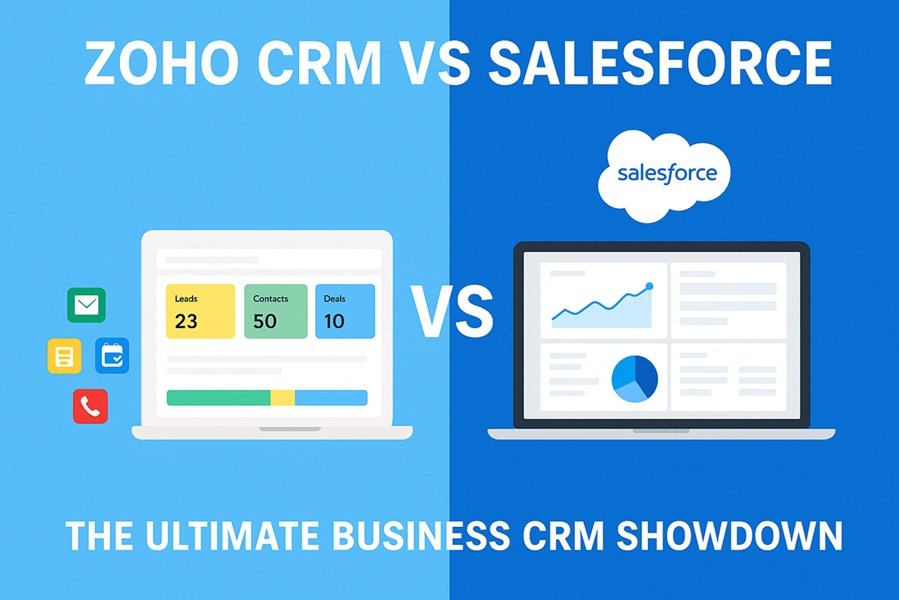
Introduction
Customer Relationship Management (CRM) software has become the backbone of modern business operations. Whether you’re a small startup nurturing your first leads or a large enterprise managing millions of customer interactions daily, a reliable CRM helps you streamline sales, automate processes, and strengthen client relationships.
Two of the most popular names in the CRM space are Zoho CRM and Salesforce. Both platforms have evolved into complete business ecosystems offering much more than contact management. However, the question remains — which one is better suited for your business?
Let’s explore this in detail by comparing Zoho CRM and Salesforce on parameters like features, pricing, customization, scalability, and overall value.
Overview of Zoho CRM and Salesforce
What is Zoho CRM?
Zoho CRM, developed by Zoho Corporation, is a cloud-based CRM solution designed for startups, small businesses, and growing enterprises. Known for its affordability and simplicity, Zoho offers a complete suite of business tools that integrate seamlessly — including Zoho Books, Zoho Projects, Zoho Desk, and Zoho Mail.
Its user-friendly interface, low learning curve, and AI assistant Zia make it an excellent choice for teams that want to automate sales and marketing without hiring a dedicated CRM administrator.
What is Salesforce?
Salesforce, founded in 1999, is the global leader in CRM technology. It’s best known for its Sales Cloud, Service Cloud, and Marketing Cloud offerings — all designed to support large-scale enterprise needs. With powerful automation, advanced analytics, and an enormous integration ecosystem through the AppExchange, Salesforce dominates the CRM market.
However, with great power comes complexity. Salesforce offers deep customization options but often requires experienced administrators or certified consultants to implement and maintain the system effectively.
Key Comparison: Zoho CRM vs Salesforce
| Feature | Zoho CRM | Salesforce |
|---|---|---|
| Best For | Small to Mid-sized Businesses | Medium to Large Enterprises |
| Ease of Use | Simple interface, quick setup | Complex but highly customizable |
| Pricing | Starts lower, includes free plan | Higher pricing, more add-ons |
| AI Capabilities | Zia AI for insights and lead scoring | Einstein AI for deep predictive analytics |
| Integration | Works seamlessly with Zoho ecosystem | 5000+ integrations via AppExchange |
| Customization | Basic to moderate customization | Deep customization through Apex and Lightning |
| Implementation Time | Fast (days to weeks) | Longer (weeks to months) |
| Support | Email, chat, and phone support | 24/7 enterprise support, partner network |
1. Ease of Use and Setup
Zoho CRM wins in this category for its simplicity and clean UI. Setting up sales pipelines, adding leads, or creating workflows can be done with minimal training. Small businesses often find Zoho’s onboarding process hassle-free.
Salesforce, on the other hand, is feature-heavy and complex. While its interface (Lightning Experience) is visually modern, the extensive configuration options can overwhelm new users. For large organizations, this flexibility is an advantage, but it requires technical know-how.
Verdict:
✅ Zoho CRM for beginners and smaller teams.
🏢 Salesforce for enterprises with dedicated CRM admins.
2. Pricing and Value for Money
Pricing often becomes the deciding factor between the two platforms.
- Zoho CRM offers a Free Plan for up to 3 users and paid plans starting from around ₹1,000 per user/month (billed annually). Even higher-tier plans remain affordable and include most core CRM functions.
- Salesforce starts at a higher price point and adds costs for advanced analytics, API access, and premium support. Implementation expenses can also be significant due to the need for technical expertise.
Verdict:
💰 Zoho CRM delivers excellent value for SMBs.
💼 Salesforce justifies its cost for complex enterprise needs.
3. Features and Automation
Zoho CRM
Zoho provides a balanced mix of automation tools:
- Workflow automation and assignment rules
- Sales process tracking (Blueprints)
- Email marketing automation
- Built-in telephony and social media integration
- Zia AI for forecasting and lead prioritization
Salesforce
Salesforce offers unmatched automation capabilities:
- Salesforce Flow and Process Builder for complex automation
- Einstein AI for predictive scoring, next-best actions, and forecasting
- Industry-specific modules and deep data analytics
- Customizable dashboards and reports
Verdict:
🚀 Salesforce dominates in advanced automation and AI.
⚙️ Zoho CRM provides sufficient automation for 90% of SMBs.
4. Customization and Integrations
Salesforce’s AppExchange is a massive ecosystem with thousands of third-party apps. Businesses can create tailored modules, automate cross-department processes, and even build custom apps using the Lightning Platform.
Zoho CRM supports customization through Zoho Creator (its low-code platform) and offers integration across its own suite — Zoho Books, Campaigns, Desk, and more — along with third-party connectors like Zapier.
Verdict:
🔧 Salesforce offers deeper customization and integration options.
🧩 Zoho CRM is simpler but sufficient for most small and medium setups.
5. Analytics and Reporting
- Zoho CRM: Offers pre-built dashboards and visual reports through Zoho Analytics, making performance tracking straightforward.
- Salesforce: Goes beyond traditional analytics with Tableau integration and Einstein Discovery, offering predictive modeling and deep data visualization.
Verdict:
📊 Salesforce leads in enterprise analytics.
📈 Zoho CRM is efficient for standard reporting needs.
6. Support and Community
Zoho provides reliable support channels — email, chat, and phone — depending on your subscription tier. Its help documentation is user-friendly.
Salesforce’s global community, training ecosystem (Trailhead), and partner network are industry-leading. However, premium support comes at an additional cost.
Verdict:
🌍 Salesforce has a stronger support and learning ecosystem.
☎️ Zoho CRM is faster for direct customer support at lower tiers.
7. Scalability and Future Growth
If you’re a business expecting to scale aggressively across multiple regions or departments, Salesforce’s architecture will serve you for the long term. It handles large datasets, complex roles, and multi-department workflows efficiently.
Zoho CRM also scales well but is more suitable for businesses with linear growth rather than multi-division structures.
Verdict:
📈 Salesforce for large-scale expansion.
🚀 Zoho CRM for growing SMEs.
Pros and Cons Summary
Zoho CRM Pros
- Affordable pricing, including free plan
- Quick setup and simple user experience
- Integrated Zoho ecosystem
- Good automation and AI assistant (Zia)
- Ideal for small and mid-sized businesses
Zoho CRM Cons
- Limited third-party integrations compared to Salesforce
- Not ideal for highly complex enterprise workflows
Salesforce Pros
- Market leader in CRM innovation
- Deep customization and integration potential
- Powerful AI and analytics tools
- Strong partner and developer ecosystem
Salesforce Cons
- Expensive licensing and maintenance
- Longer implementation time
- Requires dedicated admin or consultants
Which One Should You Choose?
| Business Type | Recommended CRM |
|---|---|
| Startups and small teams | ✅ Zoho CRM |
| Growing SMBs with multiple departments | ✅ Zoho CRM (Enterprise Plan) |
| Large enterprises with complex needs | 🏢 Salesforce |
| Organizations prioritizing AI-driven insights | 🧠 Salesforce |
| Businesses seeking affordability and quick ROI | 💡 Zoho CRM |
Read This: Zoho Office vs Microsoft Office: A Detailed Comparison (2025 Guide)
Conclusion
Both Zoho CRM and Salesforce are powerful, but their suitability depends on your business size, budget, and complexity.
- Choose Zoho CRM if you want affordability, simplicity, and a complete ecosystem that grows with your small or mid-sized business.
- Choose Salesforce if you need deep customization, enterprise scalability, and advanced AI analytics to drive complex global operations.
In short, Zoho CRM is the smart choice for small to mid-scale growth, while Salesforce remains the ultimate powerhouse for enterprise-grade transformation.


